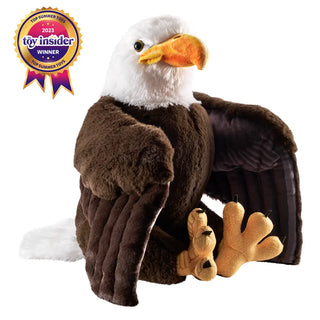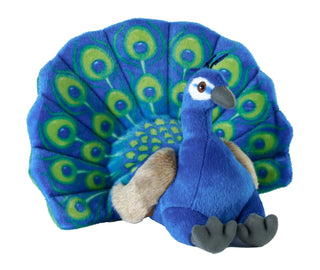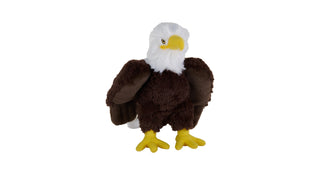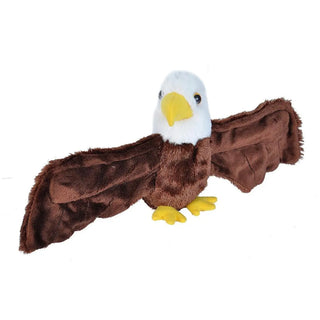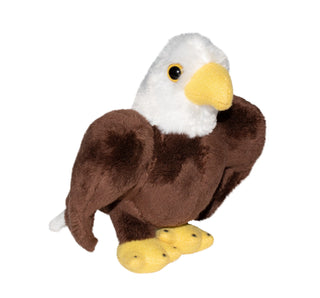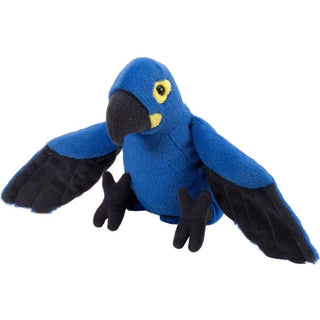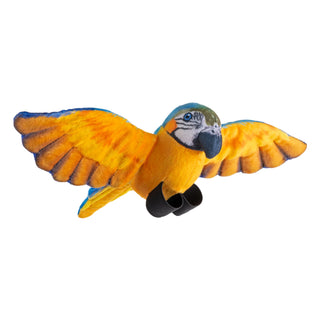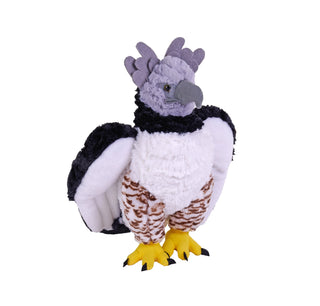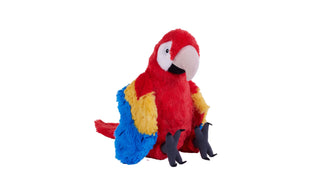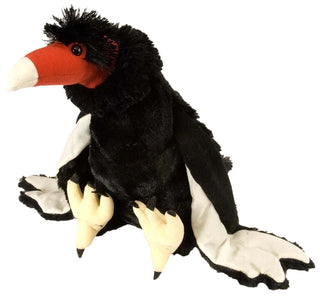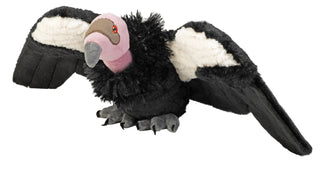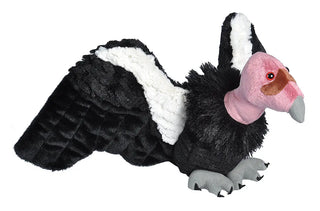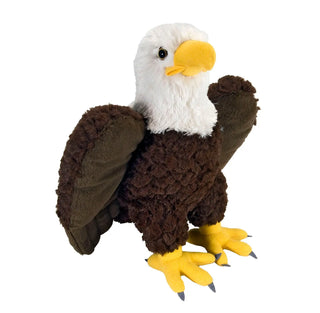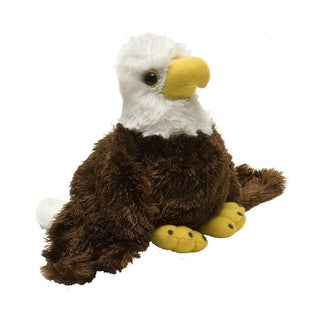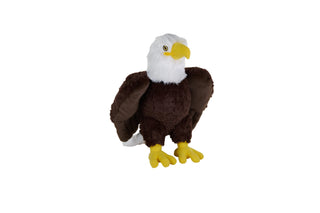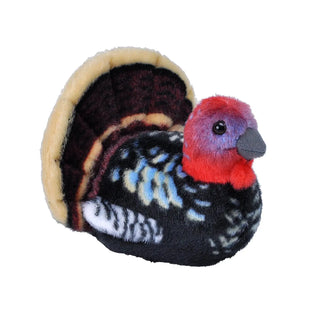Your Search For "turkey vulture" Revealed The Following:
Filter
Active Filters
Artist Collection - Bald Eagle
$43.99
- Unit price
- / per
INCLUDES:
- Age:0+
- Brand:Artist Collection
- Gender:Boy
- Gender:Girl
- Size:15"
$43.99
- Unit price
- / per
Cuddlekins Eco Peacock Stuffed Animal - 12"
$24.99
- Unit price
- / per
INCLUDES:
- Age:0+
- Brand:Cuddlekins Eco
- Features:Eco
- Gender:Boy
- Gender:Girl
- Size:12"
$24.99
- Unit price
- / per
Cuddlekins Eco Bald Eagle Stuffed Animal - 8"
$14.99
- Unit price
- / per
INCLUDES:
- Age:0+
- Brand:Cuddlekins Eco
- Features:Eco
- Gender:Boy
- Gender:Girl
- Size:8"
$14.99
- Unit price
- / per
Huggers Bald Eagle Stuffed Animal - 8"
$10.99
- Unit price
- / per
INCLUDES:
- Age:10M+
- AnimalType:Eagle
- Brand:Huggers
- Eagle
- Easter
- Gender:Boy
- Gender:Girl
- Size:8"
$10.99
- Unit price
- / per
Pocketkins Eco Bald Eagle Stuffed Animal - 5"
$8.99
- Unit price
- / per
INCLUDES:
- Age:0+
- Brand:Pocketkins Eco
- Features:Eco
- Gender:Boy
- Gender:Girl
- Size:5"
$8.99
- Unit price
- / per
Hyacinth Macaw Stuffed Animal - 8"
$12.99
- Unit price
- / per
INCLUDES:
- Age:0+
- AnimalType:Hyacinth Macaw
- Brand:Cuddlekins
- Gender:Boy
- Gender:Girl
- Hyacinth Macaw
- Size:8"
$12.99
- Unit price
- / per
Rainforest Birds Blue And Yellow Macaw Stuffed Animal - 4.5"
$12.99
- Unit price
- / per
INCLUDES:
- Age:0+
- Brand:Rainforest Birds
- Gender:Boy
- Gender:Girl
- Size:4.5"
$12.99
- Unit price
- / per
Cuddlekins Harpy Eagle Stuffed Animal - 12"
$22.99
- Unit price
- / per
INCLUDES:
- Age:0+
- Brand:Cuddlekins
- Gender:Boy
- Gender:Girl
- Size:12"
$22.99
- Unit price
- / per
Cuddlekins Eco Scarlet Macaw Stuffed Animal - 12"
$24.99
- Unit price
- / per
INCLUDES:
- Age:0+
- Brand:Cuddlekins Eco
- Features:Eco
- Gender:Boy
- Gender:Girl
- Size:12"
$24.99
- Unit price
- / per
Turkey Vulture Stuffed Animal - 12"
$22.99
- Unit price
- / per
INCLUDES:
- Age:0+
- AnimalType:Turkey Vulture
- Brand:Cuddlekins
- Gender:Boy
- Gender:Girl
- Size:12"
- Turkey Vulture
$22.99
- Unit price
- / per
Cuddlekins Eco California Condor Stuffed Animal - 12"
$24.99
- Unit price
- / per
INCLUDES:
- Age:0+
- Brand:Cuddlekins Eco
- Gender:Boy
- Gender:Girl
- Size:12"
$24.99
- Unit price
- / per
Golden Eagle Stuffed Animal - 12"
$22.99
- Unit price
- / per
INCLUDES:
- Age:0+
- AnimalType:Eagle
- Brand:Cuddlekins
- Eagle
- Gender:Boy
- Gender:Girl
- Size:12"
$22.99
- Unit price
- / per
California Condor Stuffed Animal - 12"
$22.99
- Unit price
- / per
INCLUDES:
- Age:0+
- AnimalType:Condor
- Brand:Cuddlekins
- Condor
- Gender:Boy
- Gender:Girl
- Size:12"
$22.99
- Unit price
- / per
Bald Eagle Stuffed Animal - 12"
$22.99
- Unit price
- / per
INCLUDES:
- Age:0+
- AnimalType:Bald Eagle
- Bald Eagle
- Brand:Cuddlekins
- Gender:Boy
- Gender:Girl
- Size:12"
$22.99
- Unit price
- / per
Bald Eagle Stuffed Animal - 7"
$9.99
- Unit price
- / per
INCLUDES:
- Age:0+
- AnimalType:Bald Eagle
- Bald Eagle
- Brand:Hug'ems
- Easter
- Gender:Boy
- Gender:Girl
- Size:7"
$9.99
- Unit price
- / per
Cuddlekins Eco Bald Eagle Stuffed Animal - 12"
$24.99
- Unit price
- / per
INCLUDES:
- Age:0+
- Brand:Cuddlekins Eco
- Features:Eco
- Gender:Boy
- Gender:Girl
- Size:12"
$24.99
- Unit price
- / per
Audubon II Wild Turkey Stuffed Animal with Sound - 5"
$12.99
- Unit price
- / per
INCLUDES:
- Age:0+
- AnimalType:Wild Turkey
- Brand:Audubon Birds
- Features:With Sound
- Gender:Boy
- Gender:Girl
- Size:5"
- Wild Turkey
$12.99
- Unit price
- / per
You're viewing 1-17 of 17 results

